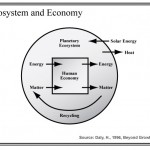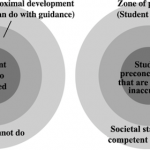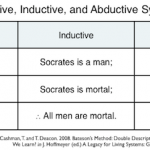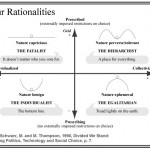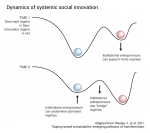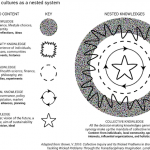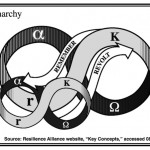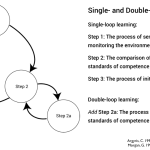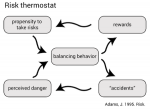A model is a representation and an abstraction that can be used in investigating and understanding how things work.
This is the definition of “model” that Greg Hill and I use in our E&S paper.
Here are a few sources for this approach:
- “Models describe how things work, whereas theories explain phenomena.” (Rapoport 1985, as cited in Berkes and Folke 1998)
- “[A model] is an illustration describing how something works by showing its elements in relationship to one another.” (Friedman 2005)
- “Models are representations and models are compressions.” (Letiche et al. 2011)
- “A model is a work object… A model is worked, and it does work.” (Haraway 2016)
- I like to pair the famous quip by Box and Draper (1987), “all models are wrong, but some are useful,” with a counterpoint by Holling et al. (2002) that mental models are “not wrong, just incomplete.” Similarly, Leonard and Clemson (1984) wrote, “Any two different perspectives (or models) about a system will reveal truths about that system that are neither entirely independent nor entirely compatible.”
- With regard to the word “representation,” in the definition at top, “a model is a representation and an abstraction,” I’m thinking also of fictional representation or even misrepresentation. See, for example, Frigg (2010) Models and Fiction (pdf).
- This gallery is a work in progress. Your favorite model missing? Other thoughts? Please get in touch: howard AT solvingforpattern DOT org or in the comment thread below.
- These images are licensed under a Creative Commons Attribution-NonCommercial-ShareAlike 3.0 Unported License. Many of them are by me; some of the better ones are by design friends Wade Larsen and Andrew Fuller.
- My shortlist of additional references on models:
-
- Frigg, R. and S. Hartmann. 2012. Models in science. Stanford Encyclopedia of Philosophy.
- Holland, J. H., et al. 1987. Induction: processes of inference, learning, and discovery.
- Page, S. E. 2014. Model thinking. Coursera.
- Rosen, R. 1991/2005. Life Itself. Columbia University Press.
- Zellmer, A. J., et al. 2006. The nature of ecological complexity: A protocol for building the narrative. Ecological Complexity (pdf).
-

